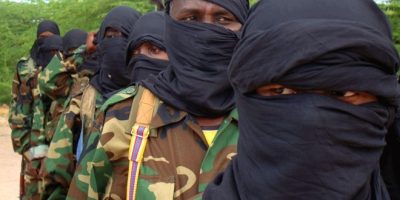Globally, an estimated 132 million children are orphans, with about eight million living in institutional care. These figures highlight the scale of child vulnerability worldwide and the urgent need for stronger family-based care and protection systems.
In Guyana, child care institutions serve as a critical first response for children who cannot remain with their families due to orphanhood or circumstances such as poverty, abuse, neglect, disease, or disability. These facilities act as temporary safety nets while more stable, family-oriented care options are explored.
Reports indicate that approximately 25,000 orphans live in Guyana, with about 7000 having lost their parents to illness. This reality prompted the Government of Guyana, in partnership with UNICEF, to strengthen family and community support systems so that children could grow up in nurturing environments rather than institutions.
The initiative sought to make institutionalisation a last resort, used only when no other suitable care arrangement was available.
The results of these efforts have been encouraging. The Child Care and Protection Agency (CCPA) reported a 25 percent decline in the number of children in institutional care –a major milestone for child protection. Currently, around 165 children are housed across facilities such as the Sophia Care Centre and Half-way Home, the Mahaica Children’s Home, and the Drop-in Centre, down from roughly 700 in previous years.
This positive trend coincides with the CCPA’s collaboration with the Ministry of Social Protection to finalise a national policy on children in institutional care. The policy aims to strengthen family systems, enhance protective services, and set standards for care, monitoring, and reintegration. Its goal is to ensure that every child, regardless of background, is provided with safety, love, and opportunities for growth and education.
Over the years, Guyana has made significant progress in promoting children’s rights and welfare, standing out as a leader in child protection in the Caribbean and Latin America. However, these achievements have not come easily. Building a society that protects and nurtures its youngest citizens has required overcoming major social, economic, and institutional challenges. Beyond financial constraints, deep-rooted issues such as inequality, stigma, and intergenerational poverty continue to threaten children’s well-being.
It is therefore essential that the current Administration continues to build on this foundation. Sustained investment, effective monitoring, and community involvement remain key to protecting vulnerable children and supporting their development. Former Education Minister and Human Services Minister Priya Manickchand noted that vulnerability is shaped not only by economic and geographic factors but also by age – making children, everywhere, the most at risk.
Recognising the importance of child welfare, Guyana’s national budget has steadily increased funding for the CCPA. These resources are used to reunite children with their biological families or, when that is not possible, to place them in foster care or adoptive homes. Family-based care remains far more beneficial to children’s emotional and developmental health than long-term institutional placement.
The care, protection, and development of children – who represent the future of humanity – must remain central to both national and global development agendas. Guyana’s continued commitment reflects its understanding that child protection is not only a moral duty but also vital to sustainable progress.
As Guyana moves forward, education must remain a priority for children in care. Education is a powerful tool for recovery and empowerment.
Children who are orphaned or otherwise vulnerable face greater risks due to economic hardship and limited parental care. For them, education provides hope, confidence, and the means to overcome poverty. Ensuring that every child in care receives consistent access to education is, therefore, crucial to achieving long-term stability and independence.
Looking ahead, the Ministry should also consider gradually reducing reliance on orphanages and transitioning towards care models that replicate family life. Internationally, children’s group homes and children’s villages have proven successful in offering more personalised, emotionally-stable environments than traditional institutions. These approaches could be adapted to Guyana’s context to further improve outcomes for children who cannot return to their families.
By continuing to strengthen family-based care, prioritise education, and modernise child protection systems, Guyana can build on its progress and ensure that every child – regardless of circumstance – has the opportunity to grow, learn, and thrive in a safe and loving environment.
The post Redefining child care appeared first on Guyana Times.















